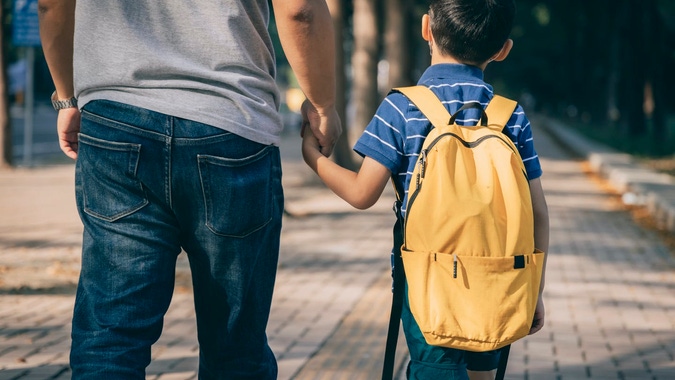The analysis quick is a short take about pleasing educational work.

shih-wei/ E+ by means of Getty images - The dialog
The massive conceptStates' monetary investments in public improvement courses for low-revenue households are linked to less baby abuse and forget about, often known as maltreatment. These investments are additionally linked to less want for foster care and maltreatment-connected deaths, according to our recent book in the journal Pediatrics.
Our analysis crew protected the two of us – Hank Puls, a pediatrician who conducts research on the prevention of baby maltreatment, and Paul Chung, who reports childhood determinants of adult health – as well as Matthew corridor, James Anderst, Tami Gurley and James Perrin.
Our study examined the connection between states' quotes of baby maltreatment and their annual spending per person in poverty on main benefit courses from 2010 to 2017. improvement programs covered these featuring money, housing or material substances, childcare assistance, refundable earned earnings tax credit and clinical information courses such as Medicaid.
Our findings point out that a rise of US$1,000, or 13%, in annual spending per person in poverty on these programs by all 50 states and Washington, D.C., might possibly be linked to about 181,000 fewer infants reported for maltreatment, 28,500 fewer victims, four,one hundred fewer babies entering foster care and 130 fewer children loss of life – each year.
Our effects additionally imply that rate reductions in infant maltreatment may give fiscal returns within the long term for states and society. The 13% increase in spending amounted to $forty six.5 billion nationally. We estimate these savings might return $1.5 billion to $9.3 billion in prevented financial burdens linked to maltreatment within the brief term, but as a lot as $25.eight billion to $153.2 billion over the course of children's lives.
Why it concernsnewborn maltreatment is a public health disaster. by means of 18 years of age, at least 1 in 8 U.S. infants could have experienced abuse or forget about. This leads to poorer overall fitness and intellectual health, as well as worse socioeconomic results, for those people and society.
We accept as true with that our analyze serves as an instance of how improvement programs may have wonderful consequences past their pointed out goals. benefit courses probably have effective, extensive and unmeasured consequences on a number of health concerns – the combined influences of which may dwarf these found for newborn maltreatment by myself.
as an example, Medicaid growth improves health care access and a few fitness and mental health outcomes. Medicaid also enormously reduces poverty and might cut back parental stress. Our examine means that that one such "aspect effect" of improvement courses can be improving households' ordinary well-being to the extent that fewer babies are abused or overlooked.
What nevertheless isn't popularA extra nuanced figuring out of how improvement programs might stay away from child maltreatment is needed. Poverty is not equally distributed amongst all infants within the U.S., and the way these programs might have an effect on maltreatment and other health-connected disparities in certain populations is still unknown.
The COVID-19 pandemic may have ended in an extended chance for newborn maltreatment. but it surely's still doubtful no matter if economic reduction, such because the CARES Act and eviction protections, aided in decreasing one of the vital perceived risk, if in any respect.
extra lately, the American Rescue Plan Act supplied direct financial aid to american citizens and blanketed basic changes to tax credits, such because the baby Tax credit score and the Earned profits Tax credit. These changes elevated income for households and, in some instances, more desirable allotted advantages to the lowest profits americans. President Biden's American households Plan proposes to prolong those tax credit score reforms and moreover put money into baby care and early schooling. It may be important to check how these coverage alterations to advantage courses may impact poverty, newborn maltreatment and well-being, in everyday.
What's subsequentWe consider that considerable alternatives remain to responsibly invest in public advantage classes. for example, 12 states have yet to extend Medicaid, over 30 million americans stay uninsured, 6 in 7 eligible families do not acquire newborn care tips and 1 in 6 U.S. little ones nevertheless live in poverty.
Our findings provide optimism that public advantage programs cannot handiest raise families out of poverty however additionally tackle infant maltreatment and enhance health more commonly.
[Over 110,000 readers rely on The dialog's e-newsletter to have in mind the realm. register today.]
this text is republished from The conversation, a nonprofit information web page dedicated to sharing concepts from academic consultants. It become written with the aid of: Henry T. Puls, institution of Missouri-Kansas city and Paul J. Chung, school of California, l. a..
read greater:
The authors don't work for, check with, own shares in or receive funding from any enterprise or organization that could benefit from this text, and have disclosed no crucial affiliations beyond their academic appointment.

No comments:
Post a Comment
Note: Only a member of this blog may post a comment.